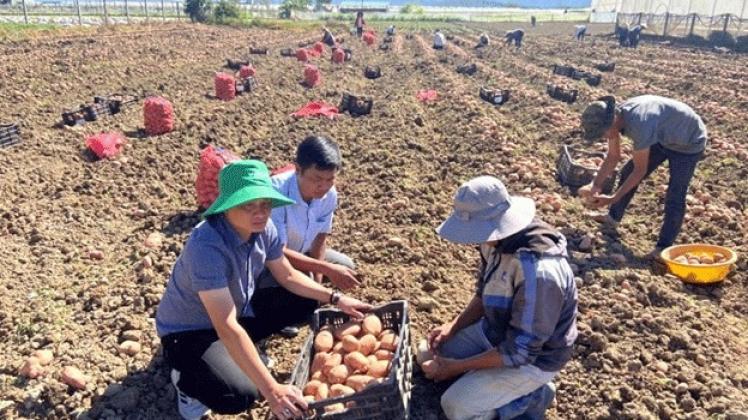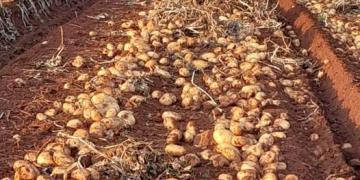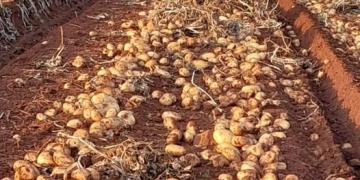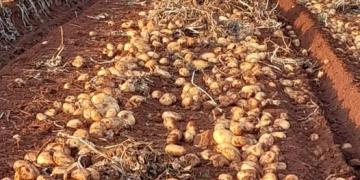Vietnam: Promoting potato cultivation in the central highlands, a model for sustainable growth and value chain integration
As Vietnam’s Central Highlands region continues to develop its agricultural sector, one crop stands out for its promising economic potential: potatoes.

Since 2023, the “Potato Production Linked to Consumption Systems in the Central Highlands” project has been expanding, aiming to improve the region’s potato cultivation while ensuring a stable market for the crop. Led by the Potato, Vegetable and Flower Research Centre, the project covers 34 hectares in Lâm Đồng and Gia Lai provinces, with the participation of 120 local farmers.
The success of the project depends on a strategic approach that includes modern agricultural techniques, effective pest control and the introduction of high-quality potato varieties such as Atlantic and TK15.80. These varieties were carefully selected and grown by the Potato Research Centre, known for their resilience and high yield. The project is guided by a model that integrates research, training and partnerships with reputable companies such as Orion Vina and Tan Tien Agricultural Services Cooperative to ensure both quality and market access.
As part of the initiative, participating farmers received in-depth training on best practices for potato cultivation, from planting to pest management. This training has proven effective, and farmers are now competent in planting, fertilization, and pest management to meet industry standards. By the end of 2024, the project exceeded its production targets, achieving an average yield of 26.5 tons per hectare, well above initial expectations.
This success is a direct result of combining traditional farming methods with modern innovations such as mechanized land preparation and harvesting. With low pest prevalence and effective disease control, potatoes produced using this model not only meet market demand for fresh produce, but also meet the standards required for industrial processing. Farmers earned an impressive 262 million dong per hectare, which is more than 26 million dong more than the earnings of farmers who did not participate.
Looking ahead, the project aims to expand production to 300-500 hectares by 2025, enabling more farmers to adopt innovative agricultural practices. This expansion will further strengthen the potato value chain in the region, ensuring local farmers have stable markets for their products while contributing to a sustainable agricultural economy in Vietnam.
The success of this model of potato production in the Central Highlands exemplifies how the combination of advanced agricultural techniques, strong business partnerships and value chain integration can generate significant economic gains for farmers. The continued expansion of this model promises to not only boost the potato industry in Vietnam, but also create a foundation for sustainable agricultural practices across the region.
Fuente: potatoes.news




